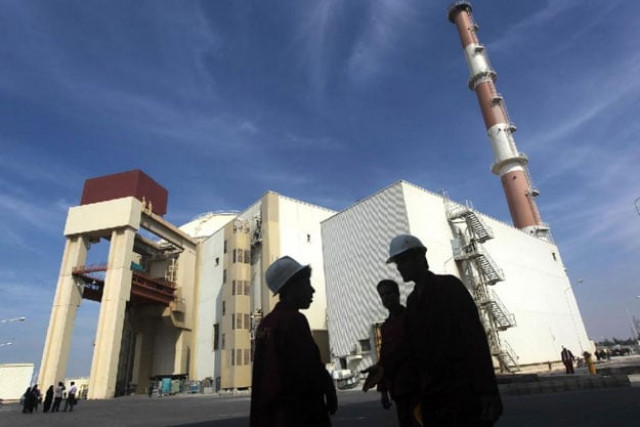Iran rules out nuclear inspections of military sites, questioning scientists
Supreme leader says no 'intelligent government' would allow such a thing and 'excessive demands' must be resisted

Iran denies it is trying to produce atomic weapons and insists the Bushehr reactor and its other nuclear facilities are purely for peaceful energy needs. PHOTO AFP
"We have already said that we will not allow any inspections of military sites by foreigners," the official IRNA news agency quoted him as saying.
"They also say that we must allow interviews with nuclear scientists. This is interrogation. I will not allow foreigners to come and talk to scientists who have advanced the science to this level," Khamenei said.
Speaking at a graduation ceremony for military cadets, he said that no "intelligent government" would allow such a thing and "excessive demands" must be resisted.
Khamenei, who has the final word on all policy matters in Iran, said Tehran would refuse to allow "the insolent enemy" to talk to its scientists, adding that other countries hide the identities of their nuclear experts.
Read: With nuclear deal in sight, Iran drives harder bargain in Indian trade talks
Several Iranian atomic scientists were assassinated between 2010 and 2012 in attacks Tehran blamed on Israel and the US.
The United States as well as Britain, China, France, Russia and Germany are in the midst of negotiations with Tehran to finalise a deal by June 30 that would prevent Iran from developing nuclear weapons, in exchange for an easing of crippling economic sanctions.
For several weeks, political and technical experts have been trying to finalise the terms of a final agreement. They were due to gather again on Wednesday in Vienna for talks.

Iran's supreme leader Ayatollah Ali Khamenei has been in power since 1989. PHOTO AFP
If fully implemented, a deal would see Iran dramatically scale back its nuclear activities and submit those that remain to what US President Barack Obama has described as the "most robust and intrusive inspections and transparency regime ever negotiated".
The issue of inspections is a sticking point in the negotiations.
In late April, Iran's Foreign Minister Mohammad Javad Zarif said Tehran was ready to accept the "highest level of international transparency" available to members of the Nuclear Non-Proliferation Treaty (NPT).
Read: US Congress sends Iran nuclear review bill to Obama
But Zarif said this week that the NPT additional protocol did not grant inspectors access without limits or reason.
He said that the rules allowed "some access" but not inspections of military sites, in order to protect national "military or economic secrets".
The additional protocol provides for snap inspections of nuclear facilities by the International Atomic Energy Agency (IAEA) and requires that information be provided on all activities regarding the nuclear fuel cycle.
Iran is a signatory of the NPT and voluntarily implemented the additional protocol between 2003 and 2006, but ceased applying it after its nuclear programme was referred to the UN Security Council.
Iran has long asserted its nuclear programme is for peaceful energy purposes, and that international concern about it seeking a nuclear bomb is misplaced.



















COMMENTS
Comments are moderated and generally will be posted if they are on-topic and not abusive.
For more information, please see our Comments FAQ